First Time in Israel: The Ultimate Guide
Whether you're traveling on a spiritual trip in the footsteps of Jesus, or just want to have some Middle-Eastern fun - your first time in Israel will be a trip you’ll never forget! This is a land that might be small, but it really packs a punch in terms of history, nature, art and culture, cuisine, and nightlife; few go away disappointed after a holiday here.
 The best sandy shores in the Middle East await you!
The best sandy shores in the Middle East await you!
Still, if it’s your first trip to Israel, you’re bound to have a few questions, not to mention be looking for tips and hacks to make sure you get the most out of your vacation. Here’s a few things we think you might want to know before you arrive. Shalom and welcome!
The Best Time to Visit Israel
Israel’s a great year-round destination but for the best weather conditions, we’d have to recommend spring and late fall. From March to mid-June, there will be plenty of sun, warm days with cool evenings and it’s perfect for sunbathing in Tel Aviv, hiking both in the Galilee, trekking in the Negev desert, and eating al fresco in the evenings.
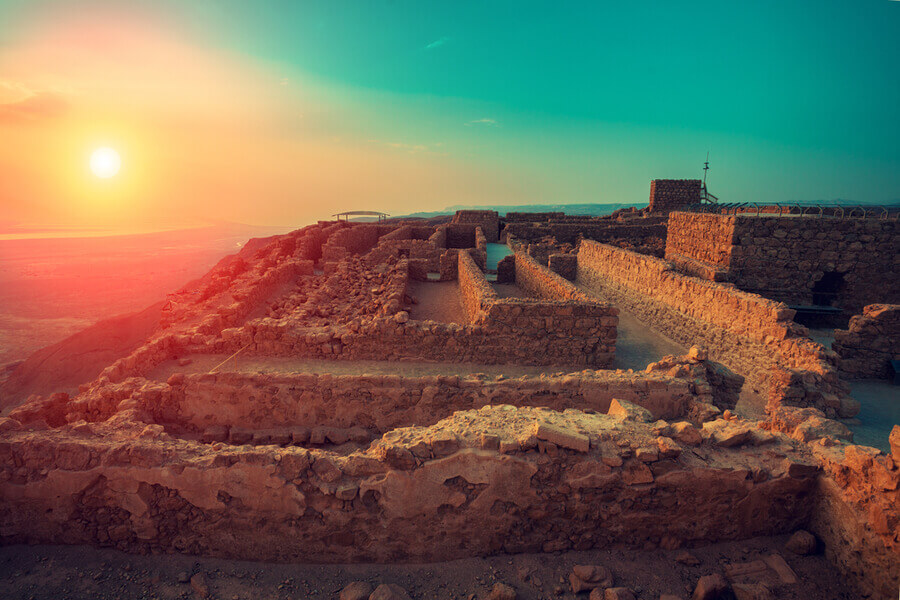 Ever seen the sunset from the top of a 2,000-year-old legendary Fortress?
Ever seen the sunset from the top of a 2,000-year-old legendary Fortress?
After the long summer months, October is a wonderful time to travel, when the heat is abating but you can still swim in the Mediterranean, and enjoy the blue skies. November is also pleasant and - with fewer tourists around - the top sites will be less crowded and accommodation will be cheaper to book.
The Worst Time to Visit Israel
There’s no real ‘worst’ time to visit Israel (honestly!) but there are certain times of the year that it’s worth avoiding, on a pragmatic level.
Yom Kippur (falling sometime between Sept-Oct) is Israel’s ‘Day of Atonement’ where at least half of the Jewish population fast for 25 hours and attend services around the clock, in synagogues. It is the holiest day of the Jewish calendar and throughout the country, everything is shut.
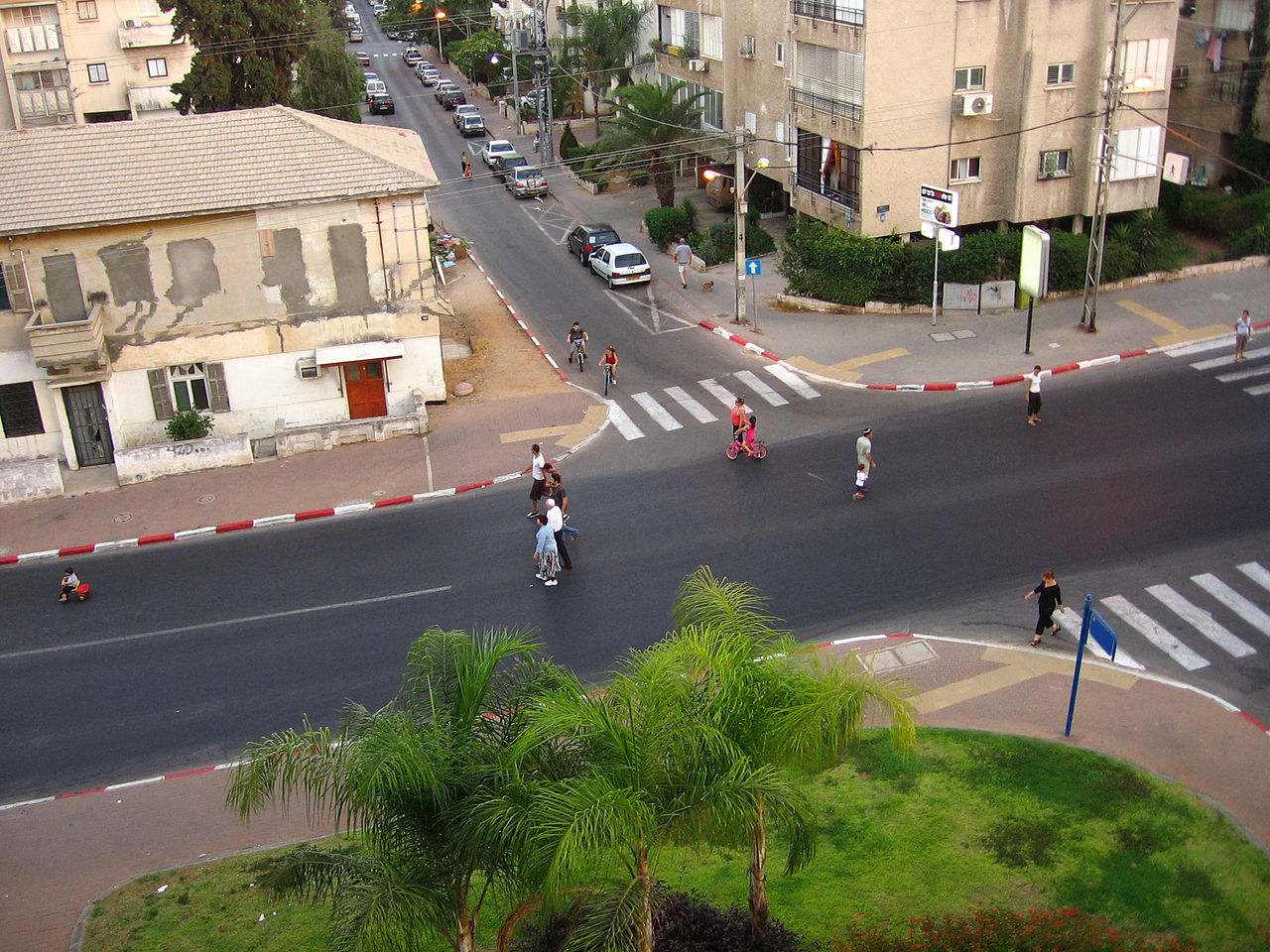 Yom Kippur In Israel - people just walking on the empty roads (Photo by Ron Almog, CC BY 2.0)
Yom Kippur In Israel - people just walking on the empty roads (Photo by Ron Almog, CC BY 2.0)
By this, we mean everything! You cannot drive on the roads, shop, visit restaurants, tour historic sites and museums and even Ben Gurion International Airport shuts down. Essentially, the country comes to a standstill - so be prepared for ‘quiet time’ if you’re visiting.
In terms of weather, July and August can be blisteringly hot, and January and February cold and rainy (especially in Jerusalem and the Golan Heights). And two of the major Jewish holidays - Passover (which lasts for 8 days and falls in the spring) and Sukkot (a seven-day festival in the Fall) are when Jews from around the world visit Israel, so the country is very crowded.
Must-See Historic & Religious Sites in Israel
Israel is home to hundreds of religious and historic sites, but some are so incredible that they have to be on your ‘Milk & Honey bucket list‘. They include:
The Old City of Jerusalem. the Old City is small (less than one square kilometer) but walking through its ancient gates and wandering inside its walls is truly an unforgettable experience. Sacred to three major world religions (Christianity, Judaism, and Islam) the Old City is crammed with religious sites, including Via Dolorosa and Church of the Holy Sepulchre, the Dome of the Rock and Temple Mount, the Western Wall and the ancient underground tunnels of the City of David.
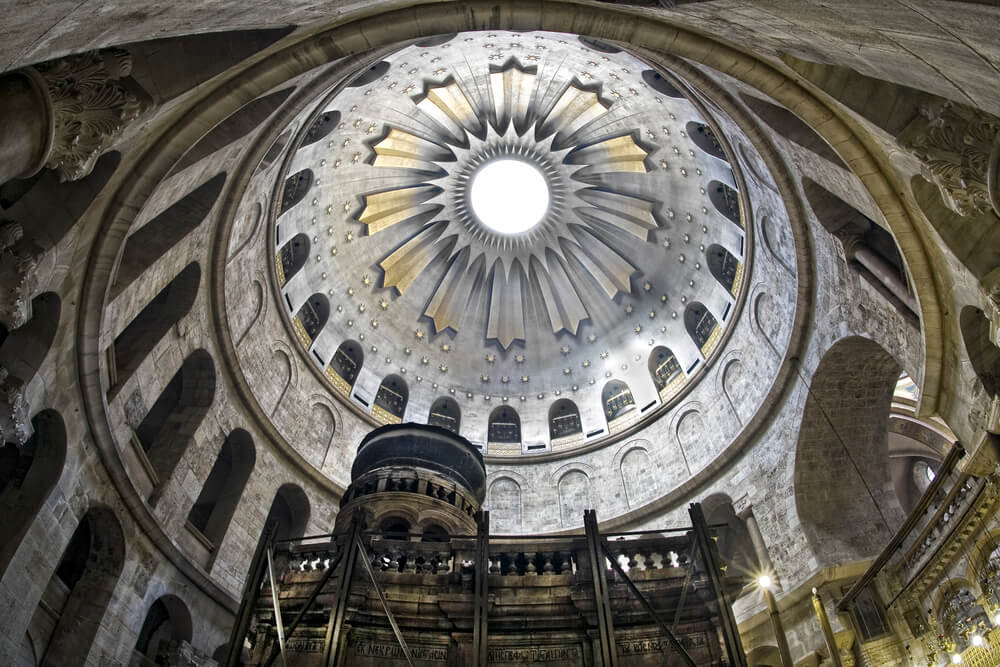 The Church of the Holy Sepulchre in Old Jerusalem
The Church of the Holy Sepulchre in Old Jerusalem
You could spend days, if not weeks, exploring Jerusalem but if you really want to get the most out of it we recommend taking a walking tour of the Old City - guides in Israel are licensed by the Ministry of Tourism and you’ll be blown away at how much history they really can share with you.
Also, try to find time to visit the Mount of Olives. Just outside the Old City, it’s home to the Garden of Gethsemane and several beautiful churches, including Dominus Flevit, Pater Noster, and the Russian Church.
Masada Fortress: the ancient fortress of Masada, set on a plateau in the Judean desert, is one of Israel’s most visited archaeological sites. At its top is a Herodian palace, which you can reach and explore by taking a cable car up and witnessing dramatic views. The Masada national park is also close to the Dead Sea, so you can easily combine the two attractions in an organized day trip - there's plenty of Masada Tours to choose from.
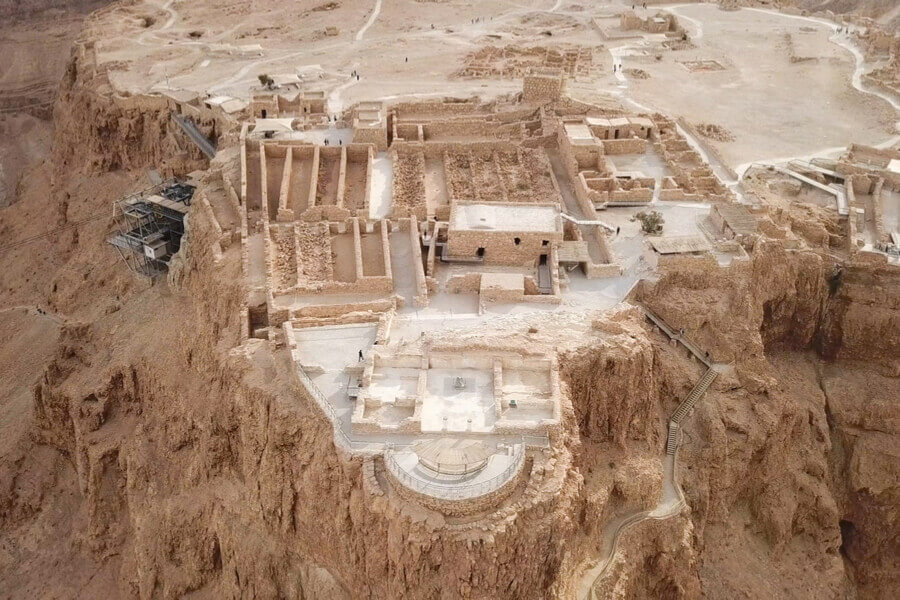 Masada Fortress from above
Masada Fortress from above
Bethlehem: The famous birthplace of Jesus is just a short trip from Jerusalem. You can visit Manger Square, continue to the Church of Nativity, see enjoy great street food along the way. The city is under the control of the Palestinian Authority so the easiest way to explore it is with an organized tour to Bethlehem; you will have the services of guides on both sides of the checkpoint and a comfortable and safe trip.
 Don't tell me you never spent Christmas in Bethlehem!
Don't tell me you never spent Christmas in Bethlehem!
Nazareth and the Sea of Galilee: The north of Israel isn’t just stunningly pastoral; it’s also home to Nazareth - where Jesus lived as a child - and the Sea of Galilee - where he spent most of his adult life, ministering, recruiting his disciples and performing miracles. Churches, synagogues, and glorious views of mountains and hills at every turn mean these spots should definitely make the ‘must-visit’ list.
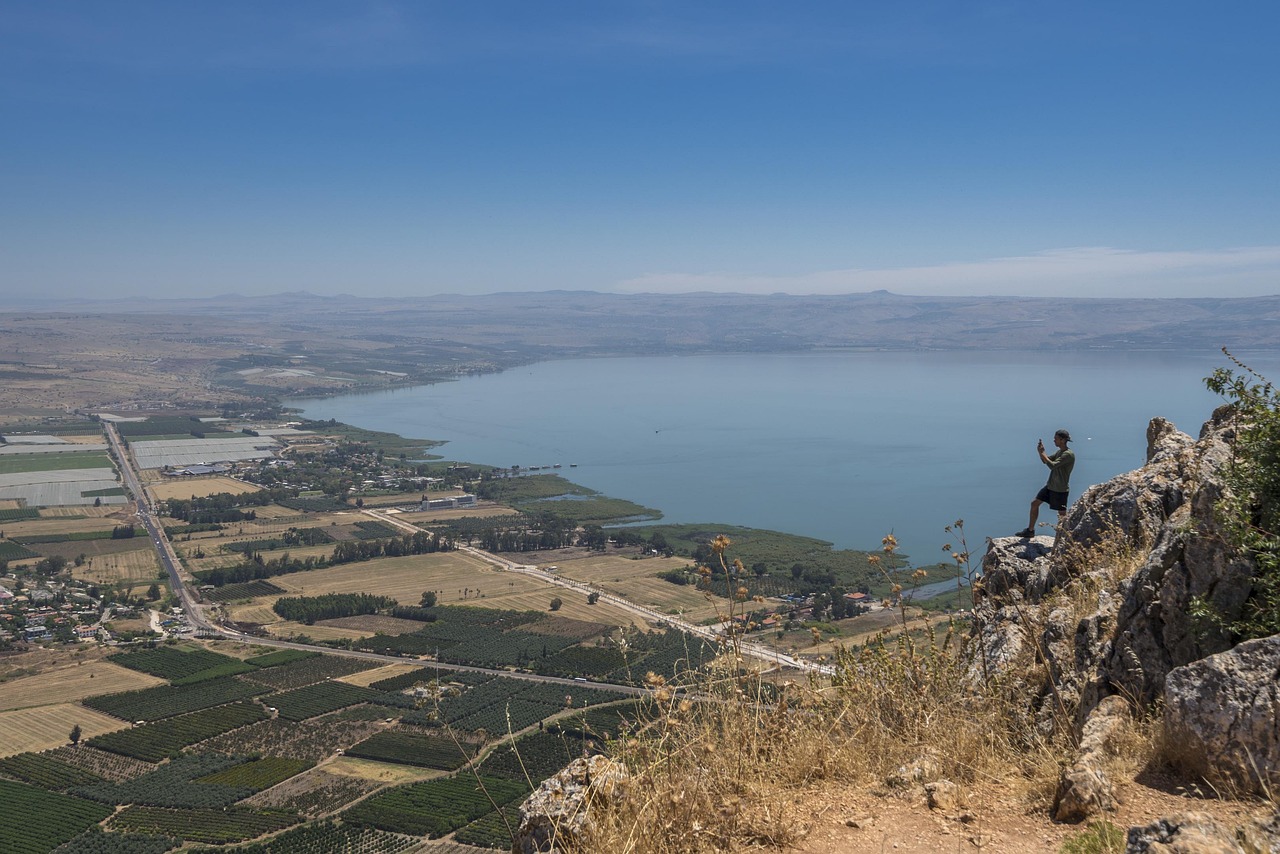 The Sea of Galilee
The Sea of Galilee
What about nature and outdoor activities in Israel?
You’re truly spoilt for choice in Israel when it comes to the great outdoors and with plenty of spots to ski, dive, hike, trek, rappel, and jeep ride - adrenalin junkies will be in paradise.
Israel’s home to some stunning national parks, within which you can hike or bike along trails, swim in streams and stand under waterfalls, and picnic under eucalyptus groves. In the Golan Heights, you can take jeep tours along the border with Syria, affording you not just magnificent views but a chance to see old fortifications from wars fought long ago.
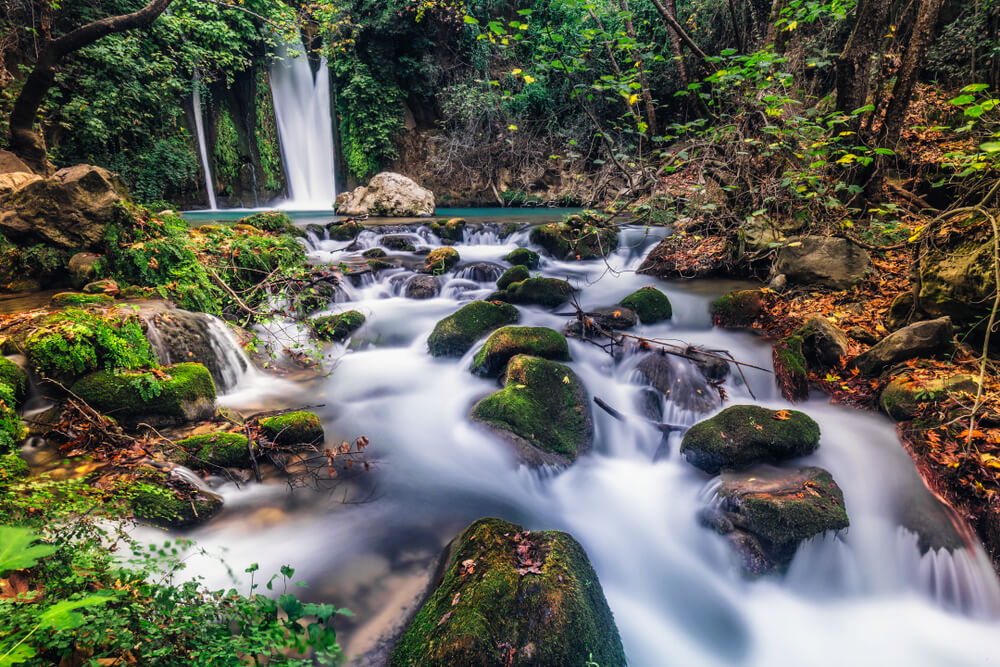 The Banias Waterfall
The Banias Waterfall
Down in the Negev and Arava desert, you can hike and trek through wadis (valleys), camp under the stars, spend a night with Bedouins, and explore one of the largest craters in the world - the Mahktesh Ramon in the tiny town of Mitzpe Ramon. Walk around its edges, hike inside it (it’s home to wonderful flora and fauna), or - for an experience, you’ll never forget - rappel down its side!
Finally, for those who love the water, head to Eilat for snorkeling and diving in coral reefs, jet skiing and paddleboarding on the Red Sea, swimming with dolphins on a reef, camel riding in the nearby mountains, and a trip to Timna Park, home to incredible rock formations and an ancient copper mine!
Israeli food: what should I expect?
It’s impossible not to eat well in Israel. Trust us, this country is heaven for foodies, not to mention vegetarians and vegans, lovers of baked goods, cheese aficionados, those who keep kosher, and even gluten-intolerant folks.
 The Holy Land has some awesome gourmet food
The Holy Land has some awesome gourmet food
Because Israeli society is such a melting pot (Jews from every corner of the globe live here) that’s reflected in its food. There’s fantastic fish (straight from the Mediterranean), all kinds of white and yellow cheeses, an astonishing variety of fresh fruits and vegetables, and boutique bakeries at every turn.
“Classic” Israeli street food includes falafel in pita (deep-fried chickpea balls, served up with salad, pickles, and tahini), sabich (an Iraqi sandwich), and - of course - hummus (if you’re adventurous, order a plate of it with an egg, mushrooms or ful (Egyptian fava beans). Meat lovers can go with shawarma or chicken soup (also known as ‘Jewish penicillin’).
 Israeli Street food is almost addictive!
Israeli Street food is almost addictive!
For those who are really curious, we’d recommend a Carmel Market food tour in Tel Aviv or perhaps splashing out on a gourmet meal at one of Jerusalem’s top restaurants.
What’s the daily atmosphere like in Israel? Is it safe?
Israelis are an interesting bunch - they’re curious about the world, love talking to tourists, are warm and friendly, and sadly often so direct that visitors mistake this for rudeness! Something else you’ll notice is that contrary to everything you read in the news, daily life in Israel is quite ‘normal’ (save for occasional flare-ups, most of which tend to happen in the West Bank).
 Israelis will just smile at you; it's in their nature
Israelis will just smile at you; it's in their nature
Israel’s remarkably safe on a personal level - you can walk around at 3 am and no harm will come to you - and is, therefore, a good place for solo and female travelers.
Nearly everyone speaks some English and many people are fluent (Israelis are great travelers themselves) and are anxious for visitors to see how wonderful their country is.
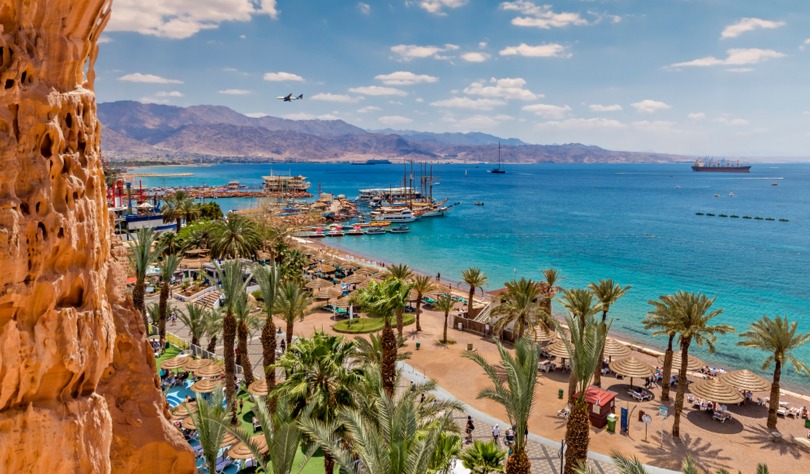 Eilat, Israel's best resort city
Eilat, Israel's best resort city
Most of all, Israelis love to help. If you trip over in the street, 20 people will run to lend you a hand. If you’re lost, you’ll not only be given directions but often offered a ride. And if you’re visiting over the Jewish holidays, don’t be surprised to receive an invite to someone’s home - hospitality here is legendary.
What does a 10-day trip to Israel cost?
We won’t sugarcoat it - this country can be expensive; Tourists arriving here are often astounded by the high cost of food, alcohol, and accommodation - of course, there are ways to travel Israel on a budget and make your trip more affordable - but you do need to prepare yourself.
Whilst it’s possible to travel independently (public transport is cheap and efficient, most locals speak good English, infrastructure is developed) but you’re still going to spend a fair bit. That’s why many people choose, on their first trip, to opt for a package tour around Israel.
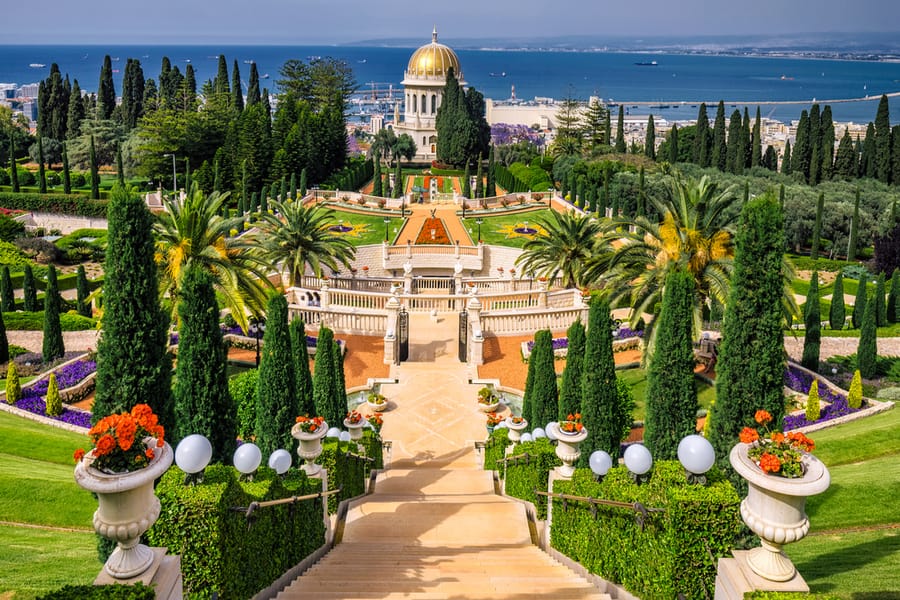 The Bahai Gardens in Haifa
The Bahai Gardens in Haifa
Whether you’re looking for a ‘classic trip’ or something oriented towards Christian pilgrims, booking a package means you’ll have the services of a guide, an air-conditioned bus, the cost of entrance to many sites paid in advance, and all accommodation organized for you.
Basically, it’s a stress-free and time-efficient way to see the country and, when you’ve crunched the numbers, it may not be that much more expensive than going it alone.
 Tour groups can save more, and do more in Israel
Tour groups can save more, and do more in Israel
That being said, it’s also possible to travel the country independently and, whenever you feel like it, book an Israel day trip. Places like Masada and the Dead Sea, Nazareth, and the Galilee, are a bit tricky to travel around without a car rental, and if you don’t want to drive or - of course - want to know more about the history of these areas, then a day tour with a guide is the way to go.
If you’re interested in learning more about our taking a vacation in Israel or Organized Tours in Israel, feel free to reach out by email, Whatsapp, or phone - we’re happy to answer all your questions and help you make your trip a very memorable one.
 Login / Register
Login / Register
 Contact Us
Contact Us
 Certificate of Excellence
Certificate of Excellence Guaranteed Departure
Guaranteed Departure Low Prices Guaranteed
Low Prices Guaranteed 24/7 Support
24/7 Support




